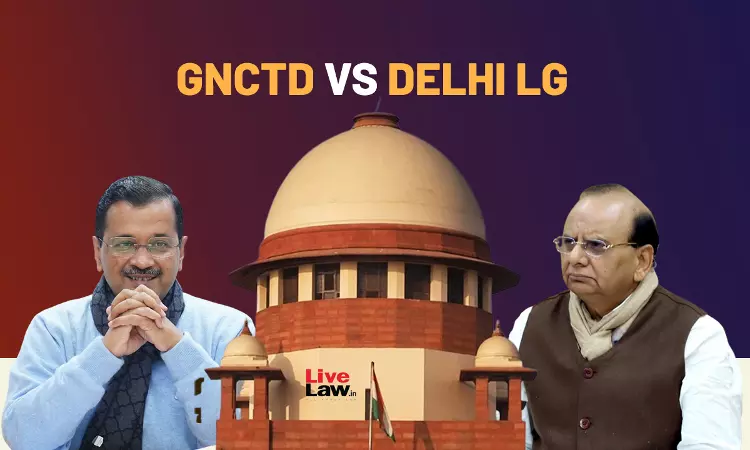GNCTD vs LG: Supreme Court Holds Delhi Govt Has Control Over "Services" Excluding Public Order, Police & Land
Padmakshi Sharma
11 May 2023 11:59 AM IST

Next Story
11 May 2023 11:59 AM IST
The Supreme Court today held that the National Capital Territory of Delhi has legislative and executive power over administrative services in the National Capital, excluding matters relating to public order, police and land. The Lieutenant Governor shall be bound by the decision of Delhi government over services, apart from public order, police and land, it held.A Constitution Bench...
